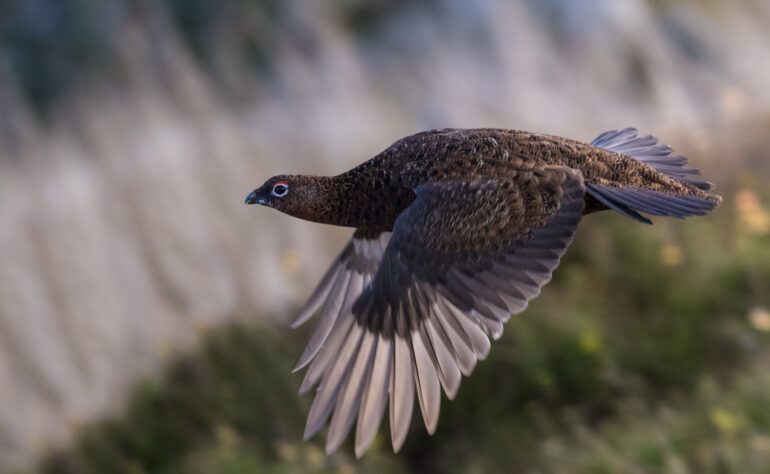As another challenging season for grouse shooting opens today, a prominent nature conservation organisation is calling upon landowners to shift their focus from grouse shooting to revitalising moors for the benefit of nature.
The appeal comes as shooting estates grapple with their fourth consecutive difficult season, marked by low grouse populations in many areas due to the impacts of climate change and increased parasite and disease burdens. Attempts to bolster these numbers by releasing farmed partridges and pheasants have been stymied by bird flu.
Luke Steele, Executive Director of Wild Moors, said: “There’s only one way to manage moorland for grouse shooting and that’s by burning away and damaging fragile peatland habitats and killing of wildlife at the expense of the climate and biodiversity.
“Ironically, it is climate change which is posing one of the biggest threats to grouse moors, with grouse populations dwindling as a result of a warmer climate and parasite burdens being bolstered too. The result is a grouse drought: once again, there will be little, if any, grouse shooting in many areas this shooting season.”
In a fruitless bid to drive up the numbers of grouse available for sports shooting, moorland estates have continued to burn heather to provide younger, more nutritious vegetation for game birds to eat. But the practice has been identified by Natural England as one of the biggest drivers of damage to some of the nation’s most sensitive and carbon-rich peatland sites.
Landowners choosing to restore moorland are taking proactive steps to reverse the decades of harm inflicted to peatlands. This involves discontinuing intensive practices such as burning and instead blocking drainage ditches and reinvigorating peatlands by restoring their wetness.
One significant landowner making this shift is United Utilities, England’s largest corporate landowner, with extensive moorland in Derbyshire and Lancashire. The company announced last month that it will not be renewing its game bird shooting leases, opting instead to restore the land to deliver cross-cutting benefits for water management, wildlife preservation, climate stability and the creation of new employment opportunities and skill development.
Luke Steele adds: “The world is fast moving in a direction where restoring land for nature, carbon and people is at the forefront of tackling climate change and biodiversity loss. There has never been a better time for grouse moors to join them.”
